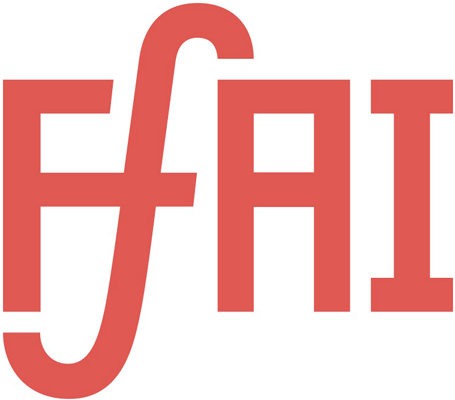Photo: Roza El-Hassan: The Gate (with letter Syn, S), 2016, Adobe Bricks and Ytong; Breeze 9, on Future's Dialect, Antwerp, 2015 (Adobe Dome and Stars painted on the floor)
The Glossary of Common Knowledge is a five-year research project run by Moderna galerija (MG+MSUM) within the framework of the broader European project Uses of Art - the Legacy of 1848 and 1989 by the European confederation L'Internationale.
At the fifth seminar, which will take place from 27 to 29 June 2016 at the Museum of Contemporary Art Metelkova, the narrators will discuss the referential field “commons”.
The goal of the project is twofold: to compile a glossary of art terminology that differs substantially from what is found in the existing literature on art, and to do so in collaboration with institutions and individuals from Europe and other parts of the world. These so-called narrators will propose terms relating to their own practices and contexts and subsequently compare them. They will be involved in the process of editing the glossary throughout the project, producing new knowledge through comparisons. This will make the Glossary of Common Knowledge an alternative to comparable projects that conform to the dominant epistemological models. The terms will be discussed and defined at seminars dealing with five referential fields (historicizing, subjectivization, geopolitics, other institutionality, commons), and then compared to produce new ones through associative connections. At the seminars, curators will work with narrators from the institutions of the confederation L’Internationale and with narrators from other parts of the world. The contents of the Glossary is accessible at the Glossary of Common Knowledge website glossary.mg-lj.si and also available at the Moderna galerija website mg-lj.si. In 2017, the Glossary of Common Knowledge will be published in book form.
At the fifth seminar, which will take place from 27 to 29 June 2016 at the Museum of Contemporary Art Metelkova, 15 internationally renowned narrators will present 15 terms associated with “the commons”, such as basic income, the Brotherhood & Unity Highway, constituent power of the common, corrected slogan, heterotopian homonymy, palimpsest, self-management, theft, etc. The terms are specific to their local contexts of utterance, which brings to the surface the inexpressibility of universal ideas and the distinctive aspects of phenomena in their spatial and temporal contexts.
In the last decade, we have stuck to the notion of the “commons” as the only exit from the cul de sac of capitalism and of the fate of austerity and scarcity reserved for those excluded from the increasingly narrow circles of accumulation. For the “commons” to be more than a mere discursive illusion, different forms of disrupting the cycle of expropriation and of producing commonwealth must be shared and disseminated.
The “commons” manifest in various ways that encourage, celebrate and protect the right to diversity. They are signified by a decentralized structure, moving away from “traditional” methods of making artistic statements, protests, or social critiques in the globalized world. Artistic groups working with the idea of the commons look more like elaborate networks. In part, this web-like structure is the result of internet-based organizing, but it is also a response to political realities that sparked the idea of the commons in the first place.
As our communal spaces (squares, parks, streets, and schools) are increasingly occupied by the global marketplace, we see an upsurge of the spirit of radical reclaiming of the commons and of resistance towards noncritical representations of the world as a global village. Artists are disrupting, remodeling, repurposing, and hacking networking tools in order to attack the existing apparatuses provided by various corporate regimes. Their critiques propose more transparent modes of sociopolitical conduct, with active and conscious use of technology to unmask the current liberal views of the free market and culture as structures which keep culture trapped within capitalist relations.
NARRATORS FOR THE COMMONS REFERENTIAL FIELD
Curators
Zdenka Badovinac (MG+MSUM, Ljubljana, SI)
Bojana Piškur (MG+MSUM, Ljubljana, SI)
Participating narrators:
L'Internationale Narrators
Nick Aickens (Van Abbemuseum, Eindhoven, NL)
Burak Arıkan (SALT Research, TR)
Ida Hiršenfelder (MG+MSUM, SI)
Anders Krueger (M HKA, BE)
Carlos Prieto del Campo (Museo Nacional Centro de Arte Reina Sofía, MNCARS, SP)
pantxo ramas (MACBA, SP)
Narrators from the global family
Sezgin Boynik (FI/XK)
Róza El-Hassan(HU)
Aigul Hakimova (Rog, SI)
Vít Havránek (Tranzit.org, CZ)
Miglena Nikolchina (BG)
Rasha Salti (Beirut, LB)
Jelena Vesić (RS)
Glossary of Common Knowledge is a part of a five year programme The Uses of Art – Legacy of 1848 and 1989 led by L'Internationale confederation of museums. Supported by Ministry of Culture of the Republic of Slovenia and the Culture Programme of the European Union.
 |
 |
 |
 |